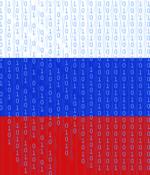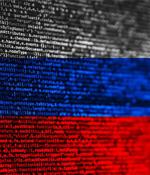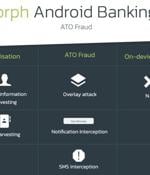Security News

The ALPHV ransomware gang, aka BlackCat, claimed responsibility for a cyberattack against Creos Luxembourg S.A. last week, a natural gas pipeline and electricity network operator in the central European country. Creos' owner, Encevo, who operates as an energy supplier in five EU countries, announced on July 25 that they had suffered a cyberattack the previous weekend, between July 22 and 23.

The beleaguered Israeli surveillanceware vendor NSO Group this week admitted to the European Union lawmakers that its Pegasus tool was used by at least five countries in the region. The disclosure comes as a special inquiry committee was launched in April 2022 to investigate alleged breaches of E.U. law following revelations that the company's Pegasus spyware is being used to snoop on phones belonging to politicians, diplomats, and civil society members.

The Chinese hacking group known as 'Winnti' has been stealthily stealing intellectual property assets like patents, copyrights, trademarks, and other corporate data - all while remaining undetected by researchers and targets since 2019. Winnti establishes persistence via an encoded WebShell, by abusing the WinRM protocol for remote access, the IKEEXT and PrintNotify Windows services for DLL side-loading, or by loading a signed kernel rootkit.

Someone at least tried to use NSO Group's surveillance software to spy on European Commission officials last year, according to a Reuters report. European Justice Commissioner Didier Reynders and at least four commission staffers were targeted, according to the news outlet, citing two EU officials and documentation.

A Russian cybercrime gang has lately sent credential-phishing emails to the military of Eastern European countries and a NATO Center of Excellence, according to a Google threat report this week. One of these crews is Coldriver, which the Google team refer to as "a Russian-based threat actor." According to Leonard, Google hasn't seen attackers successfully compromise any Gmail accounts in its phishing campaigns.

The Google Threat Analysis Group says more and more threat actors are now using Russia's war in Ukraine to target Eastern European and NATO countries, including Ukraine, in phishing and malware attacks. The report's highlight are credential phishing attacks coordinated by a Russian-based threat group tracked as COLDRIVER against a NATO Centre of Excellence and Eastern European militaries.

A broad range of threat actors, including Fancy Bear, Ghostwriter, and Mustang Panda, have launched phishing campaigns against Ukraine, Poland, and other European entities amid Russia's invasion of Ukraine. Google's Threat Analysis Group said it took down two Blogspot domains that were used by the nation-state group FancyBear - which is attributed to Russia's GRU military intelligence - as a landing page for its social engineering attacks.

Details of a new nation-state sponsored phishing campaign have been uncovered setting its sights on European governmental entities in what's seen as an attempt to obtain intelligence on refugee and supply movement in the region. Enterprise security company Proofpoint, which detected the malicious emails for the first time on February 24, 2022, dubbed the social engineering attacks "Asylum Ambuscade."

A new Android banking trojan with over 50,000 installations has been observed distributed via the official Google Play Store with the goal of targeting 56 European banks and carrying out harvesting sensitive information from compromised devices. Xenomorph, like Alien and ERMAC, is yet another example of an Android banking trojan that's focused on circumventing Google Play Store's security protections by masquerading as productivity apps such as "Fast Cleaner" to trick unaware victims into installing the malware.

The Russia-linked threat actor known as APT29 targeted European diplomatic missions and Ministries of Foreign Affairs as part of a series of spear-phishing campaigns mounted in October and November 2021. The spear-phishing attacks commenced with a COVID-19-themed phishing email impersonating the Iranian Ministry of Foreign Affairs and containing an HTML attachment that, when opened, prompts the recipients to open or save what appears to be an ISO disk image file.